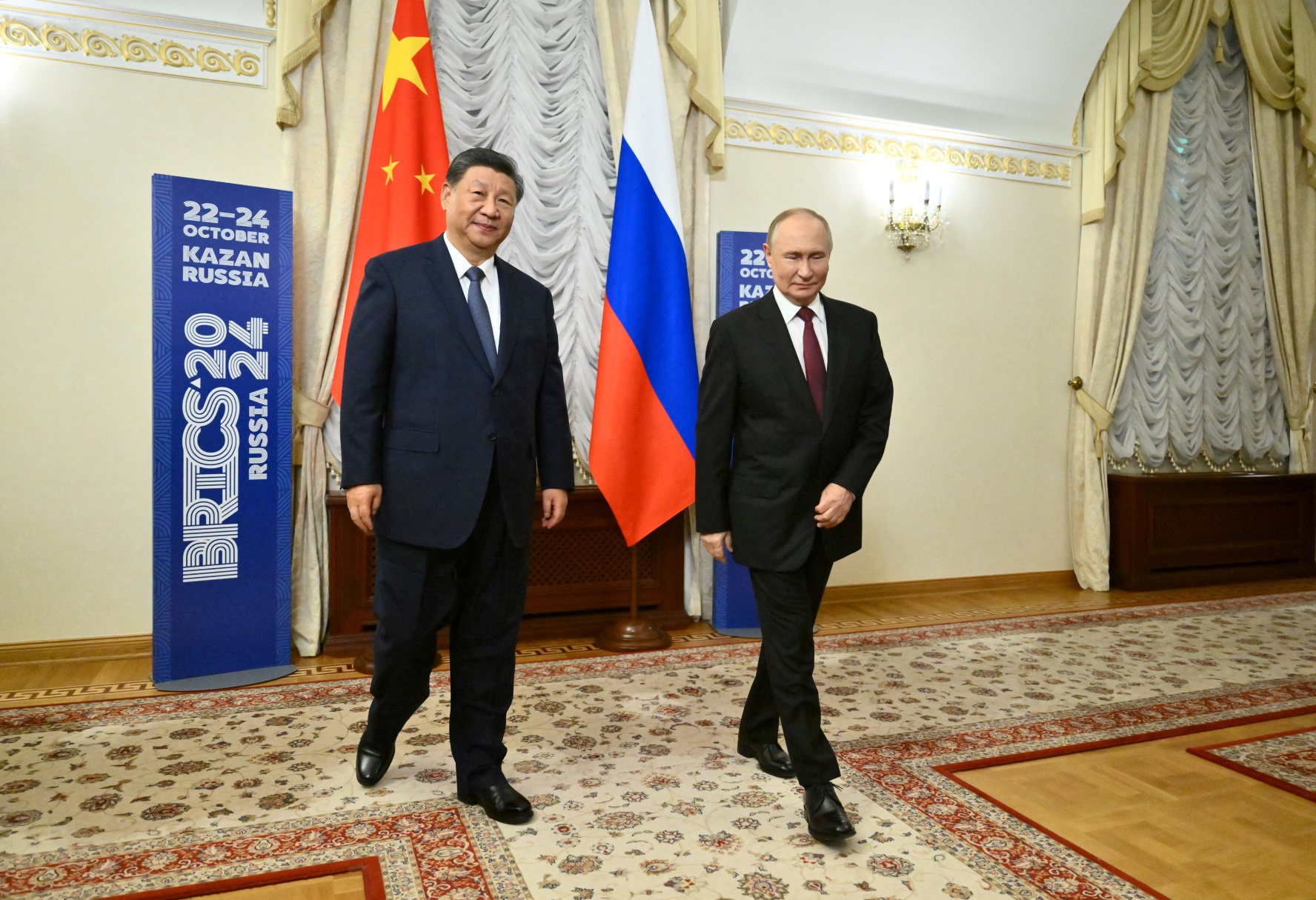







As tensions escalate between the U.S. and China, both nations find themselves on the edge of conflict, driven by mutual provocations and geopolitical maneuvering. Recent developments indicate that both countries are nearing a dangerous precipice, with the potential to cross 'red lines' that could lead to military confrontations. [0d3672db]
A significant flashpoint in these rising tensions is Taiwan, where U.S. support for the island's defense has increased. The U.S. has been bolstering its military presence in the region, which has drawn sharp criticism from Beijing. This military posturing is compounded by internal U.S. political dynamics, where hawkish sentiments are pushing for a tougher stance on China. [0d3672db]
In parallel, the ongoing military collaboration between China and Russia has raised alarms in Washington. Recent statements from Russian officials at the Xiangshan Forum in Beijing accused the U.S. of exacerbating tensions in Asia to contain both China and Russia. Alexander Fomin, Russia's deputy defense minister, emphasized that strengthening military ties between China and Russia is a priority, especially in light of perceived U.S. provocations. [cc6a834c]
The U.S., in response, has been planning to deploy mid-range missiles in Japan, a move seen as directly targeting both Beijing and Moscow. Fomin claimed that the U.S. is using the Ukraine conflict as a tool to undermine Russia, further complicating the already strained relations among the three nations. [cc6a834c]
Moreover, U.S. Deputy Secretary of State Kurt Campbell has highlighted China's ongoing support for Russia's military capabilities in the Ukraine war, stating that this relationship poses a direct threat to European security. The U.S. has accused China of providing dual-use goods that enhance Russia's military capabilities, while China has denied these allegations, asserting that Western nations are the primary suppliers of military components to Russia. [712f9fd2]
Adding to the complexity, Chad Sbragia, former U.S. deputy assistant secretary of defense for China, has emphasized the critical importance of U.S.-China defense communications. He noted that the breakdown of these communications early in the Biden administration was remarkable and detrimental, with several hundred U.S. service members still missing in China, highlighting a lost area of cooperation. Although some defense contacts have partially resumed, senior dialogues have not restarted, raising risks of misunderstandings that could escalate tensions. [d0dd1665]
Sbragia expressed concern over the lack of transparency in China's military leadership, particularly regarding the status of Chinese Defense Minister Dong Jun. He advocates for regular communication to avert crises, citing past successful interactions. The former official believes that the outcomes of upcoming U.S. elections could influence the future of military dialogue between the two nations. [d0dd1665]
As both nations engage in a dangerous game of brinkmanship, discussions of potential economic sanctions and military confrontations are becoming more frequent. Analysts warn that a breakdown in U.S.-China trade could have devastating global economic consequences, further complicating the geopolitical landscape. [0d3672db]
The situation is further aggravated by joint naval and air drills planned between China and Russia, signaling a deepening military collaboration. Russian President Vladimir Putin has warned of an increased U.S. military presence near Russia's borders, which he views as a direct threat to national security. Maria Zakharova, a spokesperson for the Russian Foreign Ministry, suggested that military cooperation between China and Russia could be a response to U.S. threats. [cc6a834c]
Looking ahead, Xi Jinping met with Vladimir Putin on October 22, 2024, during the BRICS Summit, where they discussed strengthening their partnership amid rising tensions with the U.S. This meeting underscored the growing military and economic cooperation between the two nations, particularly as China continues to support Russia in its war against Ukraine. [a08d42d9]
The U.S. Treasury imposed sanctions on 20 Chinese companies in May 2024, reflecting ongoing concerns about China's role in supporting Russia amidst the Ukraine conflict. The tensions in the South China Sea have also been highlighted, with a record 203 Chinese vessels reported by the Philippines, further complicating the regional security dynamics. [1ac08f73]
Chinese officials, including Premier Li Qiang and top diplomat Wang Yi, have visited Russia since July, indicating a commitment to strengthening ties. However, Chinese ambassador Zhang Hanhui has denied rumors of territorial ambitions in Siberia, amidst ongoing tensions over historical territorial claims, particularly regarding Vladivostok. [4991dda8]
In a broader context, some analysts argue that the U.S. perceives China through the lens of its own history of military aggression and imperialism. Chas Freeman, a former U.S. diplomat, notes that while the U.S. has engaged in military actions globally, China has not conducted military operations outside its borders for the past 40 years, maintaining only one foreign base in Djibouti. Freeman suggests that the U.S. is projecting its aggressive tendencies onto China, which lacks a Monroe Doctrine and does not seek global hegemony. [dccb5c13]
The U.S. has been at war 93% of the time since its founding, engaging in numerous conflicts and attempting regime change multiple times during the Cold War. In contrast, China's military posture has remained defensive, raising questions about the U.S.'s approach to its foreign policy and its implications for global stability. [dccb5c13]